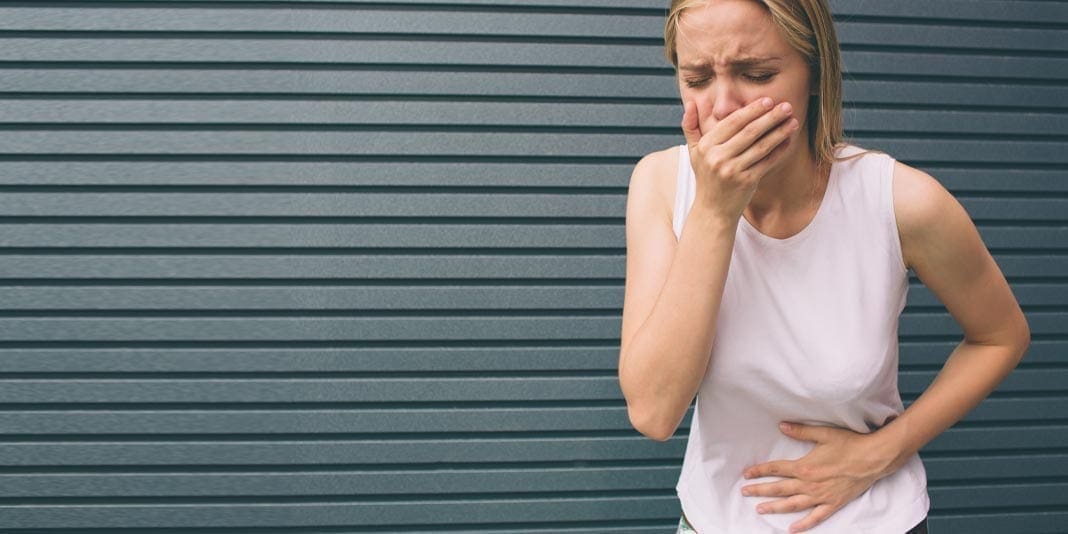Your diet looks like a Carmen Miranda headpiece.
During hayfever season, eating certain fruits and nuts can cause an allergic reaction called pollen-food allergy syndrome. Consider it a case of mistaken identity. When pollen counts are high, your body is ultra-sensitive to anything that resembles your allergen, and unfortunately, the proteins in fruits and pollen are like Mary-Kate to Ashley, explains Jacqueline Eghrari-Sabet, M.D., founder of Family Allergy and Asthma Care in Gaithersburg, Maryland.
READ MORE: How to Talk to Your Doctor About Food Allergies
For example, people with birch or alder tree allergies may swell up from munching on apples, carrots, celery, hazelnuts, peaches, cherries and pears. Also, grass allergies could cause a reaction to eating tomatoes. If you don’t want to give up your favorite fruit, cooking or peeling it usually solves the problem, suggests Dr. Eghrari-Sabet.
Vino is your fifth food group.
We hate to be a buzz kill, but research shows a link between alcohol and allergies. More than one drink per day was associated with stronger allergic reactions. That may be because regular alcohol intake causes abnormal immune response. On the plus side, you may be too tipsy to care. But if you think booze is a possible trigger for a snot fest, test it out by cutting out alcohol when your allergies are out of control to see if it helps alleviate symptoms.
READ MORE: The Real Deal on Wine’s Health Benefits
You refuse to go incognito.
When frolicking outdoors, you—and your clothes—become riddled with pollen. Your mission is to keep as much of it off your person as possible. Wear sunglasses and a hat whenever you’re outside to keep allergens off your face, lashes and lids, where they’ll cause the most irritation, advises Catherine Monteleone, M.D., associate professor of medicine at UMDNJ-Robert Wood Johnson Medical School and a board-certified allergist.
READ MORE: The Best Sunglasses for Your Face Shape
Hair is a pollen magnet, so if your locks are long, consider an updo that you can tuck under your hat when allergy season is in full effect. To further hide from allergies, keep windows in your car and home closed, and chill with the A/C instead. Remember to use the re-circulating mode in your car, so you don’t pull pollen-infested air into the vehicle.
Laundry is a dirty word.
Make like germaphobe Howie Mandel and indulge your obsessive-compulsive side. “You don’t want to skimp on laundry or bathing during prime allergy season,” says Eghrari-Sabet. Your home should be a safe haven, so follow these tips to keep pollen outdoors where it belongs.
READ MORE: 10 Best All-Natural Spring Cleaning Products
Before stepping indoors, rid your jacket of pollen with a lint brush or a good shake, suggests Dr. Monteleone. Once inside, strip down and put the rest of your clothes in the hamper.
Also, practice good sleep hygiene. Become a shower-at-night person during allergy season or at least wash your hair and face before crawling into bed, advises Monteleone. That way, you won’t slumber the night away with pollen irritating your skin and airways, and you’ll wake up less puffy and congested. And never go to sleep without changing out of your daytime clothes.
You ration your meds.
Allergy medication can be expensive, or maybe you just don’t like the way it makes you feel. Whatever the reason, you’re like Miser Steubendorf with your meds. If you treat yourself only when symptoms get bad, you’re fighting an uphill battle. Some allergy medications can work prophylactically, so your best bet is to ambush your allergies before they strike, explains Eghrari-Sabet. It’s the difference between blocking a punch to the face versus tending to your bruises later.
READ MORE: Medicine Cabinet Essentials
For best results, take your allergy drugs as prescribed when you need them, rather than rationing your dosages and suffering through sniffles and itchy, water eyes.






































